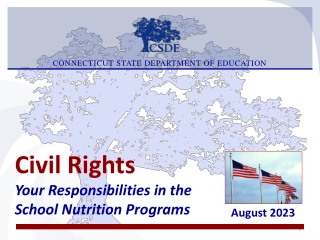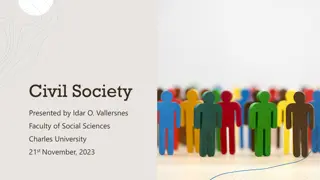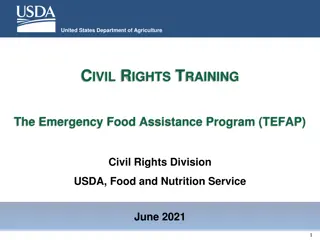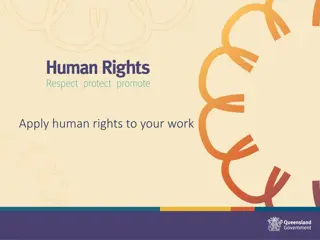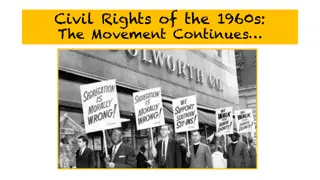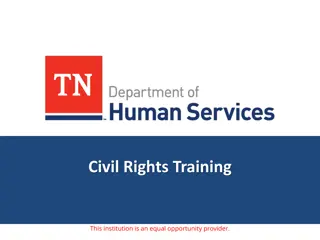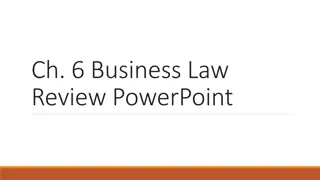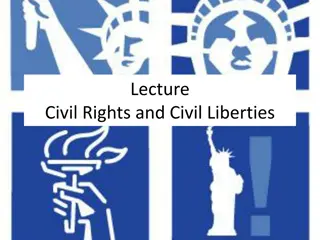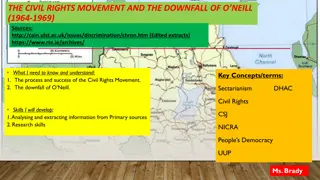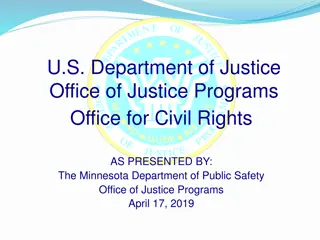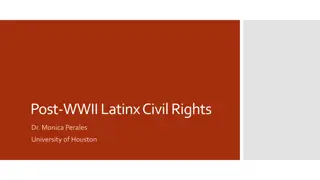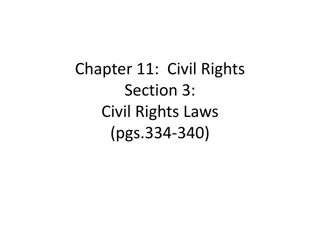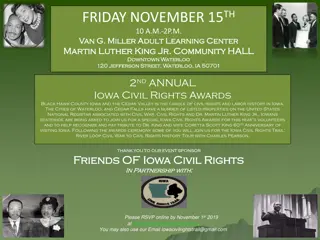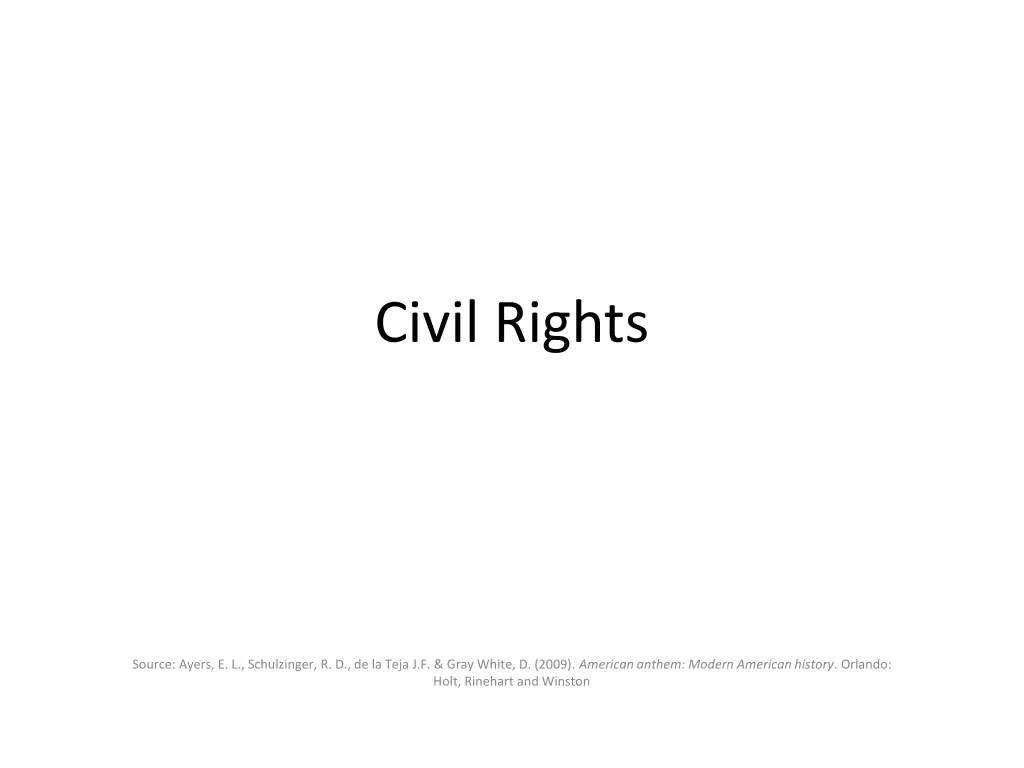
History of Civil Rights Movement
Explore the Civil Rights Act of 1964, Voting Rights Act, Twenty-fourth Amendment, Freedom Summer, and Selma March - key events in the fight for equality and justice in America during the 1960s.
Download Presentation

Please find below an Image/Link to download the presentation.
The content on the website is provided AS IS for your information and personal use only. It may not be sold, licensed, or shared on other websites without obtaining consent from the author. If you encounter any issues during the download, it is possible that the publisher has removed the file from their server.
You are allowed to download the files provided on this website for personal or commercial use, subject to the condition that they are used lawfully. All files are the property of their respective owners.
The content on the website is provided AS IS for your information and personal use only. It may not be sold, licensed, or shared on other websites without obtaining consent from the author.
E N D
Presentation Transcript
Civil Rights Source: Ayers, E. L., Schulzinger, R. D., de la Teja J.F. & Gray White, D. (2009). American anthem: Modern American history. Orlando: Holt, Rinehart and Winston
Civil Rights Act of 1964 March on Washington - August 28, 1963 - Martin Luther King Jr. s I Have a Dream
Civil Rights Act President Johnson supported the passing of a bill Some southerners in Congress resisted Johnson signed the Civil Rights Act of 1964 on July 2, 1964. The law banned unequal application of voter registration requirements, racial segregation in schools and public accommodations, and employment discrimination.
Voting Rights violent reactions to nonviolent methods Voter Education Project (VEP) opposition
Twenty-fourth Amendment August 1962. banned poll taxes (fees people had to pay to vote) It applied only to elections for president, vice president or Congress.
Freedom Summer ''I grew up in New York City. I had been raised in a family where being Jewish was important in terms of identifying with the underdog, with people who were suffering repression and discrimination ... It was tremendously impressive and exciting. For me, it was a tremendous privilege to be allowed to participate in this movement for racial justice. At eighteen years old, to be able to be involved in this kind of a struggle was very important to me.'' Peter Orris in Voices of Freedom (1990)
Freedom Summer Hundreds of college students volunteered to register as many African-American voters as possible in the state of Mississippi. Crisis in Mississippi
The Voting Rights Act Selma Campaign King organized marches in Selma, Alabama voting rights for African Americans King and many other marchers were put in prison. Police attacked a march in Marion. a four-day march from Selma to Montgomery.
Selma March March 7, 1965 600 African Americans a 54-mile march police blocked the way TV cameras The Voting Rights Act of 1965
de jure segregation de facto segregation urban unrest and riots The movement moves North.
conflict among the diverse groups of the civil rights some people beginning to question nonviolence the Black Panther Party Malcolm X and the Black Muslims death of Martin Luther King Jr.
new form for Black Power in the 1970s African Americans- the majority in the South. civil rights movements new services in nation
France gained control of Vietnam by 1883 Vietnam + Laos + Cambodia -> French Indochina taxes no civil rights Ho Chi Minh He Who Enlightens (real name: Nguyen That Thanh)
WWII Japan Vietnimh Japan surrendered the Vietnimh declared Vietnam to be independent Eisenhower domino theory Vietminh guerilla tactics The French surrendered on May 7, 1954
The Geneva Conference (1954) - France, Vietnam, Cambodia, Great Britain, Laos, China, the Soviet Union, and the United States 17th parallel Vietminh -> North France would withdraw General elections to be held in July 1956
South Vietnam - Ngo Dinh Diem - Vietcong North Vietnam - Ho Chi Mihn late 1950s civil war Eisenhower money and weapons to South Vietnam Kennedy domino theory
The Tonkin Gulf Resolution The air war - bombing Ho Chi Minh trail - chemicals Agent Orange
military draft the media s impact the first "living room war." the antiwar movement hawks and doves
1968 Vietcong attacked U.S. Embassy The TET Offensive
My Lai massacre

